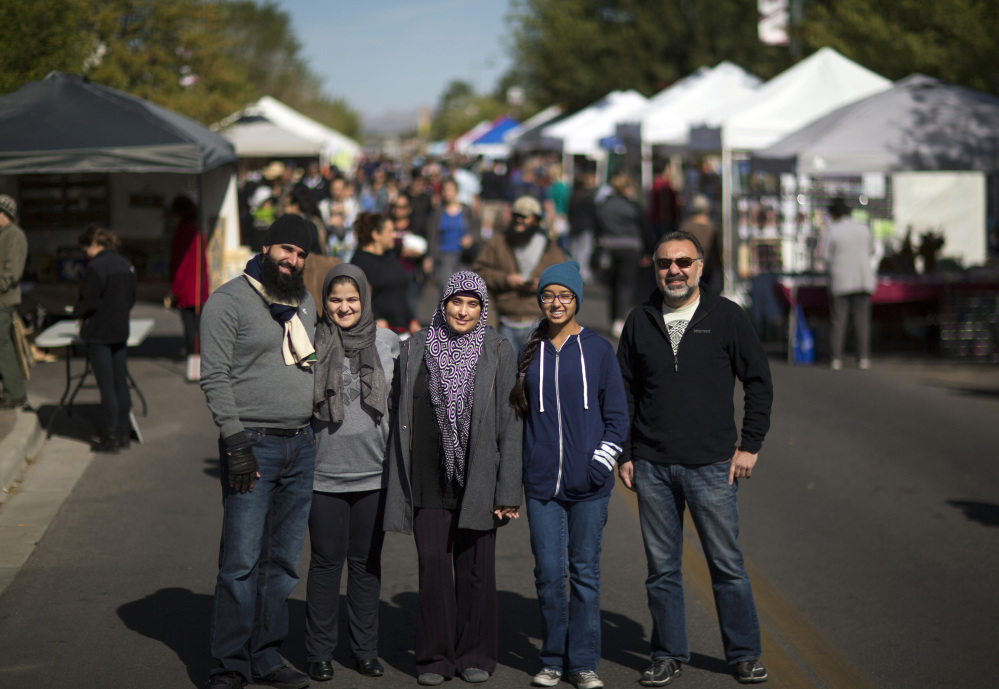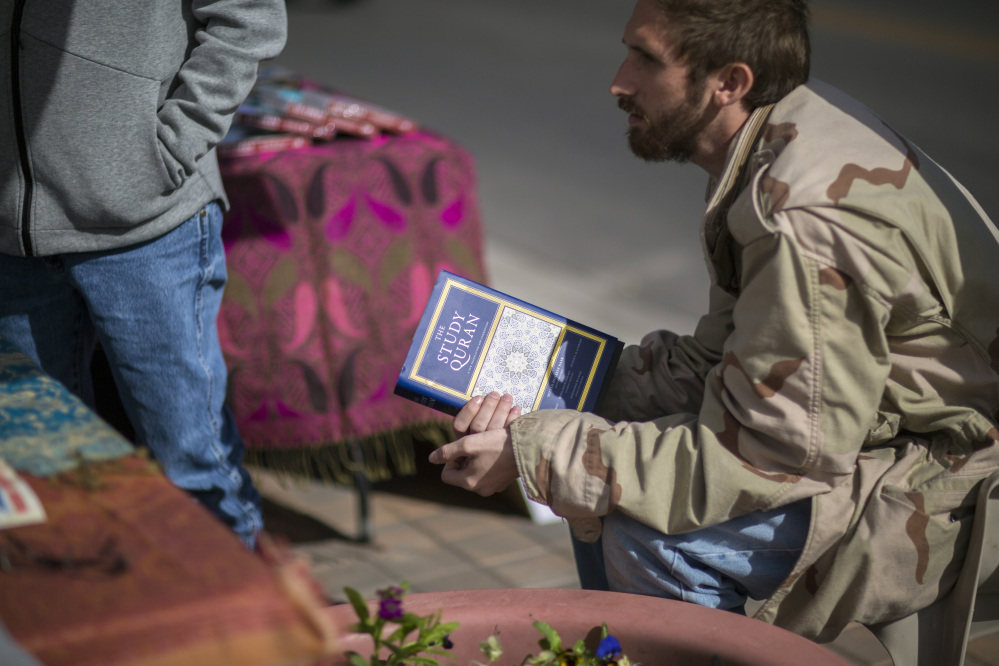LAS CRUCES, N.M. — The mother and daughter arrived just before 8 a.m., unpacking the table and folding chairs from the back of a white minivan. It was a chilly 43 degrees, and the sun cast long shadows between the farmers market stalls and the funnel cake truck, the smell of grilled meat and wood smoke hovering.
Sureyya Hussain carefully laid out the Korans.
Soon, the curious passersby began to approach with their questions, their comments and their concerns. The answers, Hussain hoped, would inform and enlighten – or at least spur constructive conversations about being Muslim in America.
“We wanted to have a voice about what Islam is for us,” said Hussain, 50, who organizes the monthly table, where anyone can come to learn about Islam.
Muslims have been facing what they see as a tide of vitriol against them during the past two years, which has included hate crimes and harassment. Muslim leaders say that sentiment is fueled by the policies of President Trump’s administration, including attempts to ban immigration from Muslim-majority countries.
Add to that the terrorism done in the name of the Islamic State extremist group – including a deadly truck attack on Halloween afternoon in New York City – and many Muslims feel like there is a constant need to defend their identities and religion from suspicion.
For some of the nation’s small-town mosques and groups of recent immigrants, the instinct has been to turn inward, keep a low profile, buy security cameras, and tell young people to avoid confrontations. Other communities have tried the exact opposite: public engagement.
The Islamic Center of Las Cruces, the only mosque in this desert town of 101,000 about an hour north of the Mexican border, is one of them.
Hussain and other members of the mosque’s Dawa – or outreach committee – come here, to the town’s farmers market, and set up a sign that says “Know Islam” amid the stalls hawking apples, kettle corn and handmade soaps. They provide free Korans and pamphlets on different Islamic beliefs, and then they sit there for five hours, offering themselves up for whatever comes their way.
They want to get out in front of the hate, nip it in the bud before it starts. Let them come with their stereotypes and their fears, but give them answers.
The questions on a typical Saturday have range: “What do you worship?” “Do you wear your scarves in the shower?” “Do you walk behind your husband?” (The answers to the last two were “No.”)
Sometimes the conversations get difficult – maybe even a little uncomfortable or combative – but the volunteers do their best to stay calm.
“I could very easily sit in my house and hang out, but I’ve decided to do something, and this is the consequence of doing something,” said Mustafa Azimi, 27, a nurse, who joined Hussain and her daughter, along with his wife and another member of the mosque. “People are going to ask you questions. The goal is showing the community that Islam is not what the news portrays. If people knew that Muslims are also – like, that I’m a nurse who also knows how to cook food – that would be awesome.”
The visitors on this Saturday included dog-walkers, families and elderly couples.
At one point, Sen. Tom Udall, D-N.M., trailed by a small scrum of aides and local TV reporters, stopped by and greeted everyone at the table.
One woman, who introduced herself as Hannah, a recent college graduate and a Christian, wondered how Muslims think about sin if they don’t believe Jesus died for them.
“For us, prophets die, prophets sacrifice, and that’s what makes them great,” Hussain explained. “We disagree on the fact that human beings carry the stain of original sin. But that doesn’t mean we can’t converse and can’t be friends.”
Send questions/comments to the editors.




Success. Please wait for the page to reload. If the page does not reload within 5 seconds, please refresh the page.
Enter your email and password to access comments.
Hi, to comment on stories you must . This profile is in addition to your subscription and website login.
Already have a commenting profile? .
Invalid username/password.
Please check your email to confirm and complete your registration.
Only subscribers are eligible to post comments. Please subscribe or login first for digital access. Here’s why.
Use the form below to reset your password. When you've submitted your account email, we will send an email with a reset code.